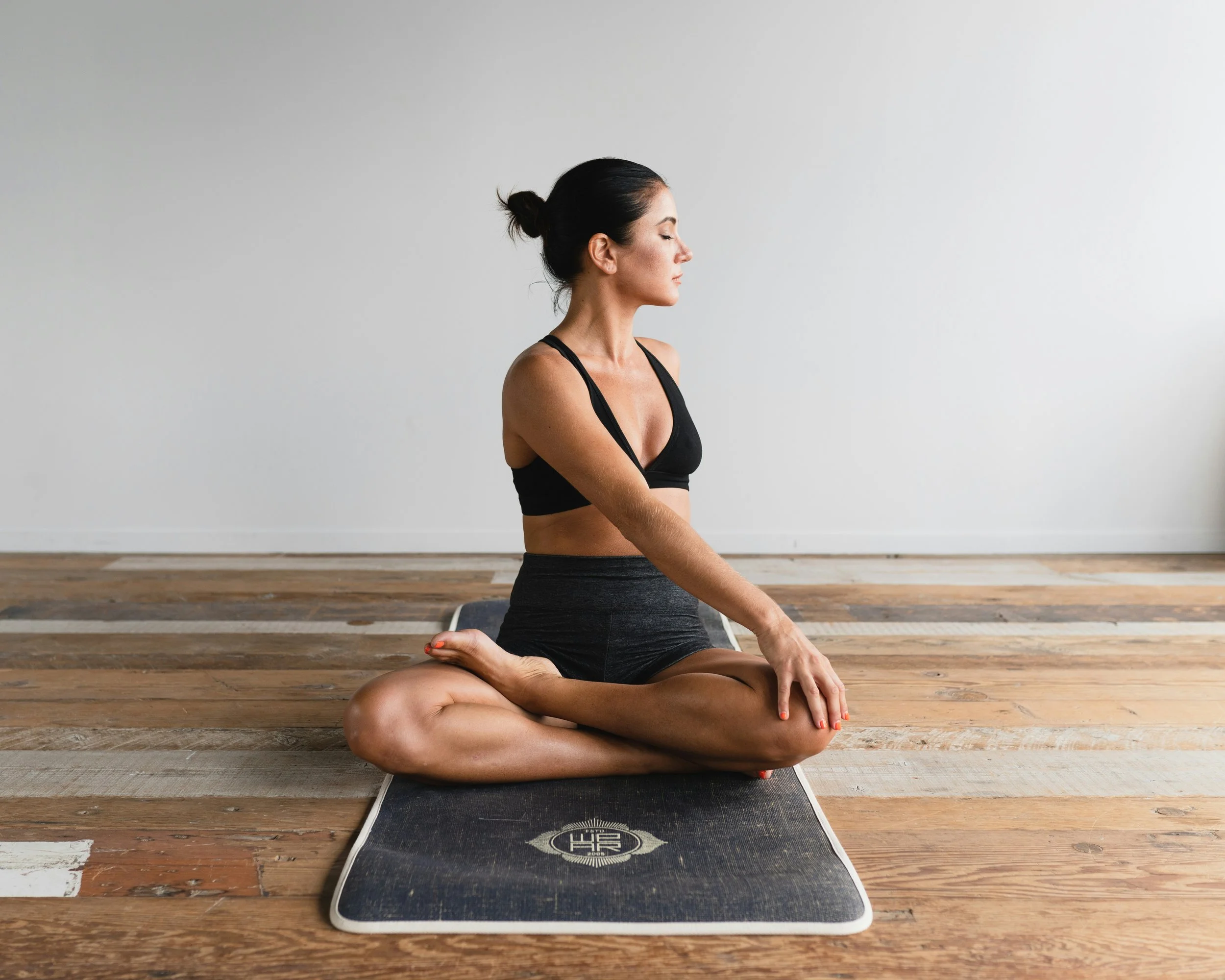How Yoga Can Support Concussion Recovery
Moving Gently. Healing Deeply.
After a concussion or brain injury, it can feel like your body and mind are speaking two different languages. You want to move, but you’re scared of overdoing it. You want to calm your thoughts, but your mind feels loud and restless.
That’s where yoga can make a world of difference.
As a brain injury survivor, I’ve learned that recovery isn’t just about rest — it’s about intentional movement, mindful breathing, and rebuilding the connection between your brain and body.
Yoga gives you the space to do exactly that.
And here’s the beautiful part: you don’t need to twist yourself into a pretzel or spend hours on a mat. Even the simplest forms of yoga — gentle movement, breathing, and mindfulness — can help your brain heal from the inside out.
The Science Behind Yoga and Brain Healing
Your brain and body are deeply connected through something called the mind-body connection — the constant communication between your nervous system, muscles, breath, and thoughts.
After a concussion, this connection can get disrupted, leaving you feeling off balance, anxious, or disconnected from yourself.
Practicing yoga helps restore that communication in a few powerful ways:
1. Regulates the Nervous System
Yoga activates the parasympathetic nervous system — your body’s “rest and repair” mode.
When you focus on deep breathing and slow movement, it sends a signal to your brain that you’re safe. This reduces stress hormones like cortisol and allows your nervous system to calm down.
That shift from “fight or flight” to “rest and recover” is essential for brain healing.
2. Improves Blood Flow and Oxygen to the Brain
Gentle stretching and mindful movement increase circulation, helping deliver more oxygen and nutrients to brain cells.
Better oxygen = better focus, reduced brain fog, and improved energy.
Yoga also supports your lymphatic system, which helps clear out waste and inflammation — both key for post-concussion recovery.
3. Supports Balance and Coordination
After a concussion, your vestibular (balance) system often gets thrown off.
Yoga gently retrains it by combining movement, focus, and breath — improving stability, posture, and proprioception (your body’s sense of where it is in space).
Even simple poses like Mountain Pose or Tree Pose can help your brain reconnect to your body’s natural rhythm.
4. Calms the Mind and Builds Mindfulness
Many concussion survivors experience racing thoughts, anxiety, or emotional swings.
Yoga’s mindfulness component — being fully present in the moment — helps calm mental noise and teaches emotional regulation.
Research shows that mindfulness-based movement can decrease overactivity in the amygdala (the brain’s fear center) and increase activity in the prefrontal cortex, the part that handles focus, calm, and decision-making.
In simple terms: yoga helps your brain slow down and breathe again.
Starting Gentle: Yoga Tips for Concussion Recovery
If you’re new to yoga or in early recovery, start slow. You don’t need to push or strain — the goal is connection, not perfection.
Here are a few beginner-friendly tips:
Start with short sessions (10–15 minutes) and build up slowly.
Focus on breath-led movement — let your breath guide you.
Choose seated or restorative poses like Child’s Pose, Seated Twist, or Legs Up the Wall.
Practice in a quiet, dimly lit space to avoid overstimulation.
Always listen to your body — if something feels dizzy or uncomfortable, pause and rest.
Your brain heals best through gentle, intentional movement.
Love Your Brain: Yoga Designed for Brain Injury Recovery
If you’re looking for a safe place to start, I highly recommend checking out Love Your Brain — a nonprofit founded by snowboarder Kevin Pearce after his own traumatic brain injury.
Love Your Brain offers free and accessible yoga programs specifically designed for people recovering from concussion or TBI. Their classes blend mindfulness, gentle movement, and community connection — all things that promote healing for both the brain and heart.
Their programs are trauma-informed and created with love, understanding, and science — making them a perfect starting point for anyone looking to move safely again.
Final Thoughts
Yoga isn’t about flexibility — it’s about finding peace and presence in your body again.
For brain injury survivors, it’s a way to rebuild trust with yourself, reconnect with your breath, and teach your nervous system what calm feels like.
Every time you step onto your mat — even for five minutes — you’re reminding your brain that healing is possible.



